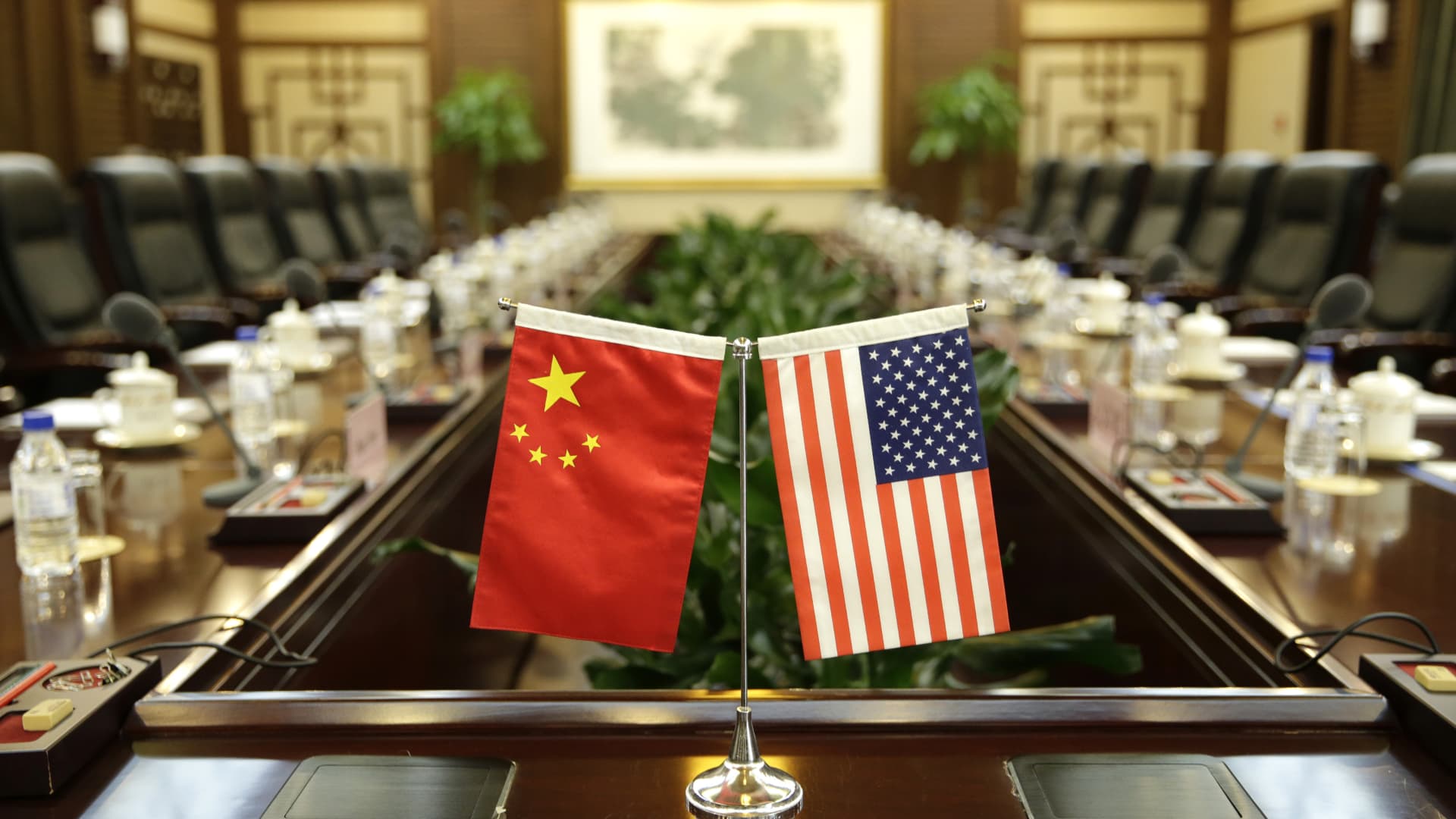BEIJING — The politically important U.S.-China relationship is vulnerable to cultural differences — such as why a phone call doesn’t get picked up.
After the U.S. shot down an alleged Chinese spy balloon this month, China’s defense ministry declined a call with its U.S. counterpart, according to statements from both sides.
It isn’t the first time China didn’t answer the phone — a hotline set up for emergencies.
Chinese culture is a reason why, said Shen Yamei, deputy director and associate research fellow at state-backed think tank China Institute of International Studies’ department for American studies.
She said she wasn’t aware of what actually happened between the U.S. and China regarding the declined phone call. But she shared potential factors — “the hidden worry,” in her understanding of Chinese culture.
“We are really afraid that if the so-called conflict control or crisis control measures that the U.S. [has] been keen to set up are really put in place, then it might be encouraging more [reckless] and careless and brazenly bold action from the U.S. side,” Shen said.
“We want China-U.S. relations to be stable,” she said. “If the U.S. is always talking about the worst-case scenario, the hotlines, the crisis control, then we are putting U.S.-China relations on a very low scale.”
The default U.S. view is quite different.
But if one side of a relationship thinks there is a misunderstanding or a problem, then any marriage counselor will tell you the other side needs to at least listen to why.Barbara K. BodineDirector, Institute for the Study of Diplomacy
“You have hotlines because if something becomes difficult or tense, or there is at least a potential for a major misunderstanding and therefore a major miscalculation, you need to be able to talk to each other quickly,” said Barbara K. Bodine, a retired ambassador and director of the Institute for the Study of Diplomacy at Georgetown University.
“Even though we probably don’t call it a hotline, if something happens with Ottawa we get on the phone and say, ‘Excuse me, what was that?'” she said. “That’s the basic part of diplomacy.”
Spy balloon vs. weather tracker
China and the U.S. have different explanations for why the balloon was flying over the U.S.
Beijing maintains it was a “civilian unmanned airship” for weather research simply blown off course. The U.S. says it was a “high altitude surveillance balloon” attempting to spy on strategic sites within the country.
The incident, widely covered by U.S. media, forced U.S. Secretary of State Antony Blinken to postpone his trip to Beijing — a rare opportunity for both countries to communicate amid heightened tensions.
The fallout also makes activating hotlines “absolutely critical” for the bilateral relationship, said Scott Kennedy, senior advisor and Trustee Chair in Chinese Business and Economics at the Center for Strategic and International Studies in Washington, D.C.
The next step, he said, “is to have more in-depth dialogue about how we view the other side, what are red lines, what we want out of the relationship and what’s achievable and practical, and then look to build on that.”
Officially, China’s defense ministry said it declined a call about the balloon because the U.S. decision to shoot it down “failed to create a proper atmosphere for dialogue and exchange between the two militaries.”
The Pentagon said it remained open to communication and doesn’t seek conflict.
But its press secretary said “a responsible nation” would have sent an alert if a civilian balloon was about to enter a sovereign nation’s airspace. “The PRC did not do that,” the secretary said, referring to the official name of China. “They didn’t respond until after they were called out.”
Beijing’s decisions are affected by the government’s closed structure and national history, while U.S. expectations on international communication are embedded in a view about relationships in general.
Using a hotline to diffuse a potentially dangerous situation does imply there’s a situation that needs to be diffused, Bodine said. “But if one side of a relationship thinks there is a misunderstanding or a problem, then any marriage counselor will tell you the other side needs to at least listen to why.”
And if that side says there’s no problem, “all of your worries and concerns and worst-scenario nightmares about what’s going on in your personal relationship are not going to get better,” she said. “They’re going to get worse.”
Future meetings
Shen from the China Institute of International Studies pointed out both sides have worked to manage tensions, and that it was important for both countries to communicate regularly, if not cooperate on issues such as climate change and international financial stability.
Blinken met with his Chinese counterpart Wang Yi at a security conference in Munich this month. U.S. Treasury Secretary Janet Yellen is also expected to visit China.
Since the balloon incident, Beijing has published several papers.
One reiterated its stance on the Russia-Ukraine war, another discussed its “Global Security Initiative” that claims to support world peace. A third paper discussed so-called U.S. hegemony — going back to the 1823 Monroe Doctrine.
“It’s very important to prevent the rhetoric from being dominated by one opinion maker,” Shen said.
Beijing has long called for the U.S. to follow principles of “mutual respect, peaceful coexistence and win-win cooperation” — a position that often results in focusing on what’s favorable for China.
“Probably most countries would like to talk about the good things in the relationship and not necessarily talk about the areas of difference,” Bodine said. “And we wouldn’t want to have a relationship that only talks about good stuff.”
“If we didn’t talk about anything disagreeable, we wouldn’t need embassies on all sides.”
